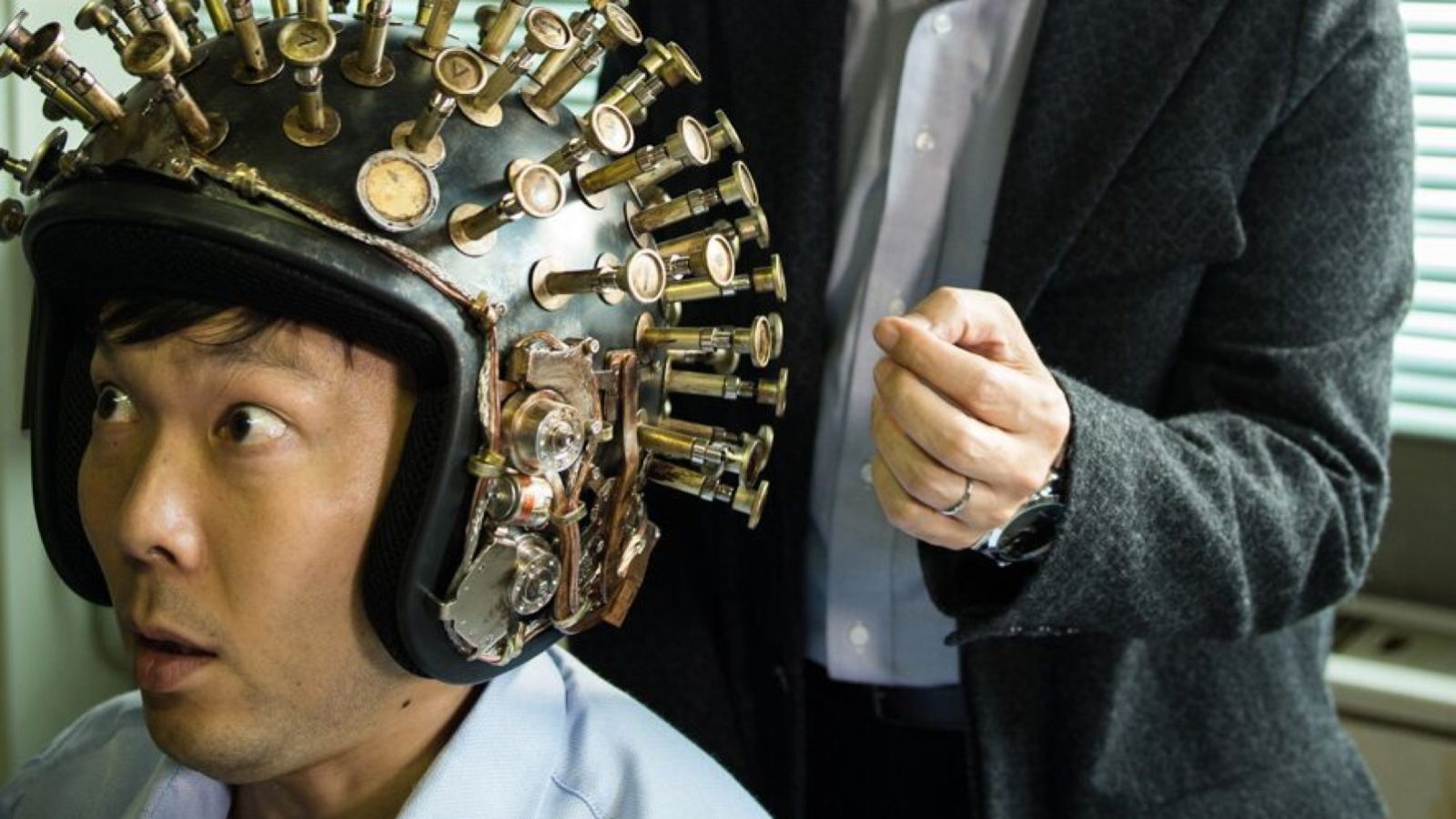
Unlike what the title suggests, Japanese cult filmmaker Sabu’s ‘Happiness’ is probably the saddest film of the year. A non-resilient, sadistic and often heart-wrenching film about memories and their truly uplifting and destructive nature.
It’s a known fact that happy moments and sad moments both have a hammering effect on our lives. They both play essential roles in breaking the monotony. While the happy moments give us joy, the sad ones give us suffering. Sabu’s film mixes some jarring narrative drifts (quite common for a Japanese film) to essentially showcases that the happy and sad memories are not far apart. They all function in the same linear limbo where life can send you either way.
The film opens with Kanzaki (Masatoshi Nagase), a well-mannered, middle-aged gentleman who arrives in an isolated town. Carrying a ‘happiness helmet’ along he tries to uplift the sad, dreamy town back to life. Initially facing a few hurdles at the employment office, Kanzaki manages to gain the trust of the mayor and the town altogether. He uses neurotic science used in his helmet to trigger the brain muscles. These brain muscles induce a dreamy haze which takes a person to the long forgotten happy moment. However, Kanzaki has a hidden agenda that concerns the youth of the town.

When questioned what is his happiest memory, Kanzaki’s reply seems to satisfy the recently uplifted town. Though, as an audience, one can notice the traces of brimming emotional conflict under Kanzaki’s personality. The film slowly but aesthetically builds up from a whimsical comedy of a traveling salesman to something that exposes the brutal side of a normal human being. Often triggered by the occurrence of tragic, haunting moments just after the immensely joyous one.
The 2015 animated film ‘Inside Out’ explored the necessity of sadness along with happiness. Sabu’s film, though brutal in its outlook and spooled along a revenge thriller, explores the same concept. There’s a whole segment of the film that shows a trajectory where a tragic moment in life turns the blooming happiness into a sad, dead-like existence.
The third act of Sabu’s film inevitably descends into rage and blood but the carefully orchestrated script gives it a sense of dreamy, hypnotic justice. Every moment feels earned and every narrative choice, though unexpected, feels organic. The carefully constructed shots, especially towards the end of the film give a special edge to the revenge thriller it becomes. While the lean thematic elements could have been easily weighed the film down if it wasn’t for Masatoshi Nagase’s brilliant understated performance. There’s a sequence where his disarming sad-existence turns into instant range within an interchangeable frame. He pulls it off with such conviction that it smashes you.
Sabu’s ‘Happiness’ is one of those films that surprises you as it unfolds. It’s also a carefully constructed film that doesn’t just bases itself on the surprises and explores why some memories – both happy and sad, eventually make us what we become.
★★★★


